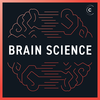Adventures in babysitting coding agents
The ever-provocative Steve Yegge joins us fresh off a vibe coding bender so productive, he wrote a book on the topic alongside award-winning author Gene Kim. Steve tells us why he believes the IDE is dead, why babysitting AI agents is more fun than coding, when vibe coding might take over the enterprise, how software devs should approach coding agents, and what it all means for society.
Matched from the episode's transcript 👇
Steve Yegge: Well, so I have just started to play with Claude 4, which has been out for a week, but I’m a little behind, because of the book and everything… So what I wanted to do is extrapolate from Claude 3.7’s performance and Claude 4’s performance, and see if I could make any right projections about where I think it’s going to be by the end of the year… Because I have a bunch of – here’s the thing, is I have a bunch of tests that I can give it. Obviously, they’re not like comprehensive eval suites like a company would run, but I’ve been struggling with a set of problems that Claude Sonnet 3.7, which is the best coder out there, hasn’t been able to get past. Real simple stuff like client-server RPCs just really seem to confuse it. Or anytime you’re going over some sort of network boundary and you’re trying to make it make changes on the client and the server, it was just outside of its sort of cognitive bounds. And you could always see it. You could try different prompting. It went on for weeks, and I just found that I had – I had a problem that was slightly too big for it. And I have probably seven of these now, and I’ve been giving them to Claude 4. I gave my first one last night, and it just – bang, it just did it. It’s like “Hmm… Okay.” So it’s a definite, definite increase. I don’t know how much, if it’s 20% or 100% yet… But what I can tell you is that the way they’re increasing, and from experts like Jason Clinton, who’s CSO at Anthropic… He told us in April at the ITRev Forum that AI has been getting 4X increases in cognitive power for decades. That’s been following – it’s a function of Moore’s law. And the experts, the consensus in the AI community is that there are probably – there are at least two more cycles left in that progression before something changes. It either slows down, or AI finds a way to speed it up. But either way, it’s going to be 16 times smarter than it is today, in June/mid-2028. And what does that even mean? What does it mean for it to be 16 times smarter? Does that mean it goes from 10 IQ to 160 IQ? I mean, I don’t I don’t know what it means, but it definitely means they’re going to be smarter than us. And so, I got a chance to meet Dario… Did I tell you guys about that?




